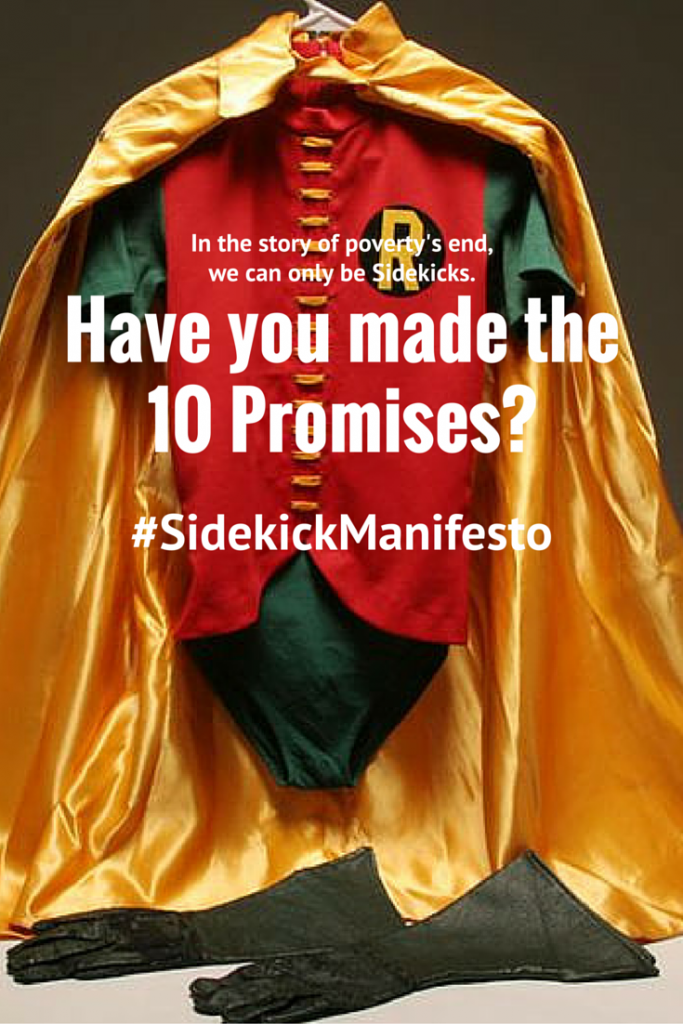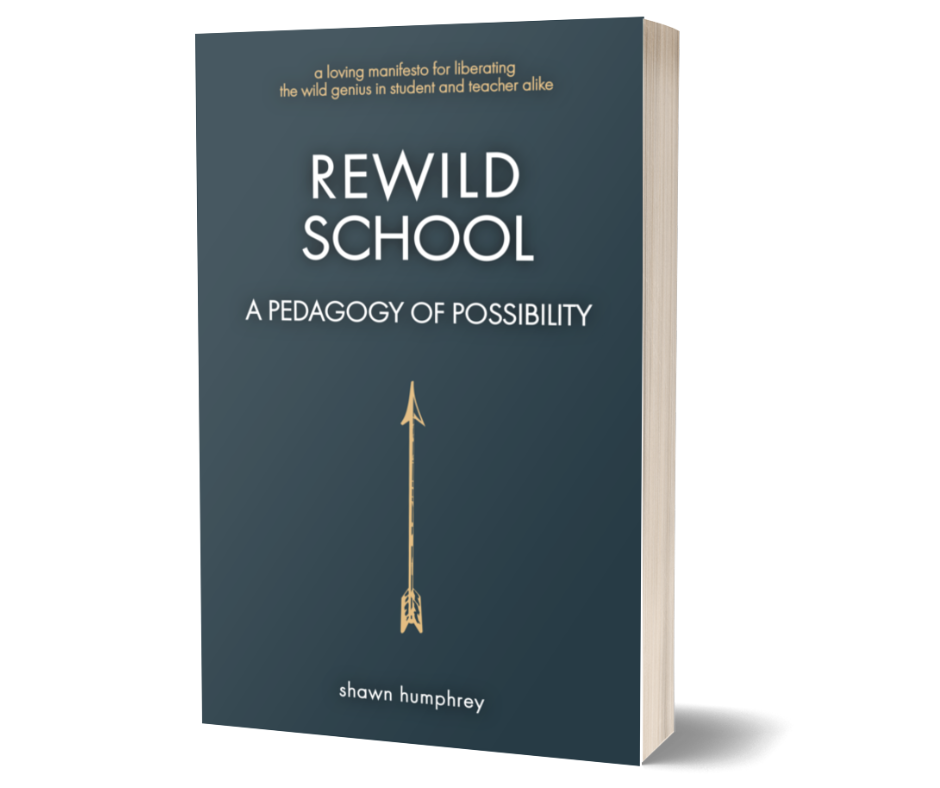We Are Sidekicks
I’m calling bull#@%.
For years, we have been told that we can be the generation that will end global poverty. Glossy non-profits with kick-ass graphic designers and artsy videographers have promised that poverty will fall to its knees when our pretty faces arrive. Agents of change with catchy Linked-in headlines touting their unparalleled power to do good have forcefully argued that poverty will collapse and crumble under the weight of our enthusiasm. Social entrepreneurs who have fashioned legendary tales of their accomplishments at moving families out of poverty have told us that poverty will retreat when it comes face-to-face with our metrics, expertise, and consultants.
How do I say this without being blunt? Well, I can’t so here it goes.
We will not end poverty.
We may make a scratch. We may even make a dent. But, we will not end poverty.
Why?
It is not our process of economic development.
Economic development is a complex process (surprise, surprise). It is a long-term process. It takes decades and not years. It is a context specific process. Lessons learned in one community are not easily transplanted to another community. It is a historically anchored process. The set of choices, strategies and policies from which a community can choose to proceed is a function of the choices, strategies and policies chosen in the past. It is a culturally sensitive process. Successful reforms in one setting may not be culturally appropriate in another setting. It is a costly process of collective action. Community members with varied backgrounds, preferences, and capabilities must organize and transform themselves into a singular and powerful voice of change. It is a political process. Local, regional and national politicians must be held accountable if they are unresponsive to the interests of their constituents.
Let me repeat. It is not our process of economic development.
We do not share their history. We do not share their culture. We do not pay their taxes. We do not participate in their elections.
We are not of their community.
For far too long, too many of us have viewed and continue to view ourselves as the protagonists in the story of poverty’s end.

The real “agents of change”, the real “change makers”, the real “serial social entrepreneurs” are the women and men advocating for change in their community, holding their politicians accountable, challenging the status quo, and taking on vested interests.
While some of us are chasing likes, they are finding ingenious ways to feed, clothe, and educate their children.
While some of us are tweeting celebrities, they are building a foundation for a better future for themselves and their families.
While some of us are putting the final touches on our latest video, they are taking on gangs, local monopolists, and inefficient bureaucracies.
They will end poverty. We will not.
Do we have a role to play? Can we make a difference? Can we be of assistance?
Yes. Yes. Yes.
It will not, however, be the role we were led to believe that we would play.
How do I break it to you?
We are not the heroes of this story. We are the side-kicks. We are Jimmy Olsen. We are Xander. We are Robin.
I think it’s about time that we get the story straight and start playing the part.
How do you view your role in the story of poverty’s end? Hero? Or, Sidekick?
+++++
If you enjoyed this blog, you may enjoy my This is the Work newsletter.
Thanks. – shawn
Read the Sidekick Manifesto and Take the Pledge!
- If you like this post, you may also like The Do-Gooder Industrial Complex.
- Photo Credit: 20th Century Fox, Burt Ward

